China’s financing and investment spread across 61 BRI countries in 2023 (up...
2024-02-27 31 英文报告下载
Credit Suisse economists believe that the Fed will not allow bond yields to rise and if necessary will commit to some form of yield curve control with a target on 3- to 5-year yields (see US Economy Notes: How to pay for it without inflation, 13 Jul). This means the Fed will most likely have to buy much more than the ECB. If the Fed expands its balance sheet more than the ECB, the dollar tends to weaken (so far this year, the Fed has expanded its balance sheet by 13% of GDP compared to 14% by the ECB). We think that going forward, the Fed will have to print more than the ECB. Since May it has funded only 20% of net issuance and we suspect this will rise.
There are two ways central banks could see the USD weakness as a threat. First, the Fed might decide USD weakness has gone too far, threatening its inflation target. Second, the ECB or the BoJ could decide that the strength of their currency is causing too much economic damage and intervene aggressively or even cut rates. However, we see a period of benign neglect on the dollar (from a policy point of view) lasting much longer than normal owing to: Low US inflation: US inflation remains far below target (core PCE is 1%), with the Fed suggesting that it will allow inflation at a minimum to overshoot its target by a similar amount to which it has undershot. This implies they would accommodate at least 2.5-3% core PCE. Moreover, imports in the US are only 14% of GDP (which is relatively low by global standards) and up to 90% of imports are dollar-denominated.
10% off the dollar trade-weighted adds only 0.2% to total core PCE one year later. BoJ and ECB action might do more harm than good: The ECB and the BoJ have so far been very quiet on their currency strength. In fact, the ECB by its actions in March (when it did not cut rates despite forecasting the worst recession on record) very clearly indicated that there seems to be a huge pain threshold before it would cut rates further. We believe central banks are now realizing that NIRP is counterproductive (it leads to asset bubbles that can hurt growth, exacerbates inequality, hurts banks’ profitability and ability to lend, and creates ‘zombie capitalism’, where firms without viable business models are kept alive with cheap credit). Additionally, any efforts to cap currency strength could potentially lead President Trump to label a country a currency manipulator.

标签: 英文报告下载
相关文章
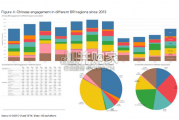
China’s financing and investment spread across 61 BRI countries in 2023 (up...
2024-02-27 31 英文报告下载
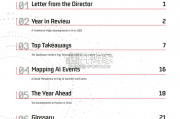
Though the risk of AI leading to catastrophe or human extinction had...
2024-02-26 52 英文报告下载
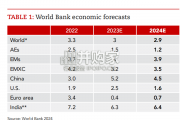
Focusing on the prospects for 2024, global growth is likely to come i...
2024-02-21 96 英文报告下载
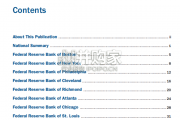
Economic activity declined slightly on average, employment was roughly flat...
2024-02-07 67 英文报告下载
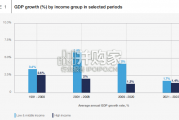
Economic growth can be defned as an increase in the quantity or quali...
2024-02-06 82 英文报告下载
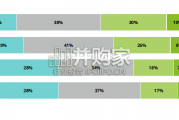
In this initial quarterly survey, 41% of leaders reported their organizatio...
2024-02-05 66 英文报告下载
最新留言